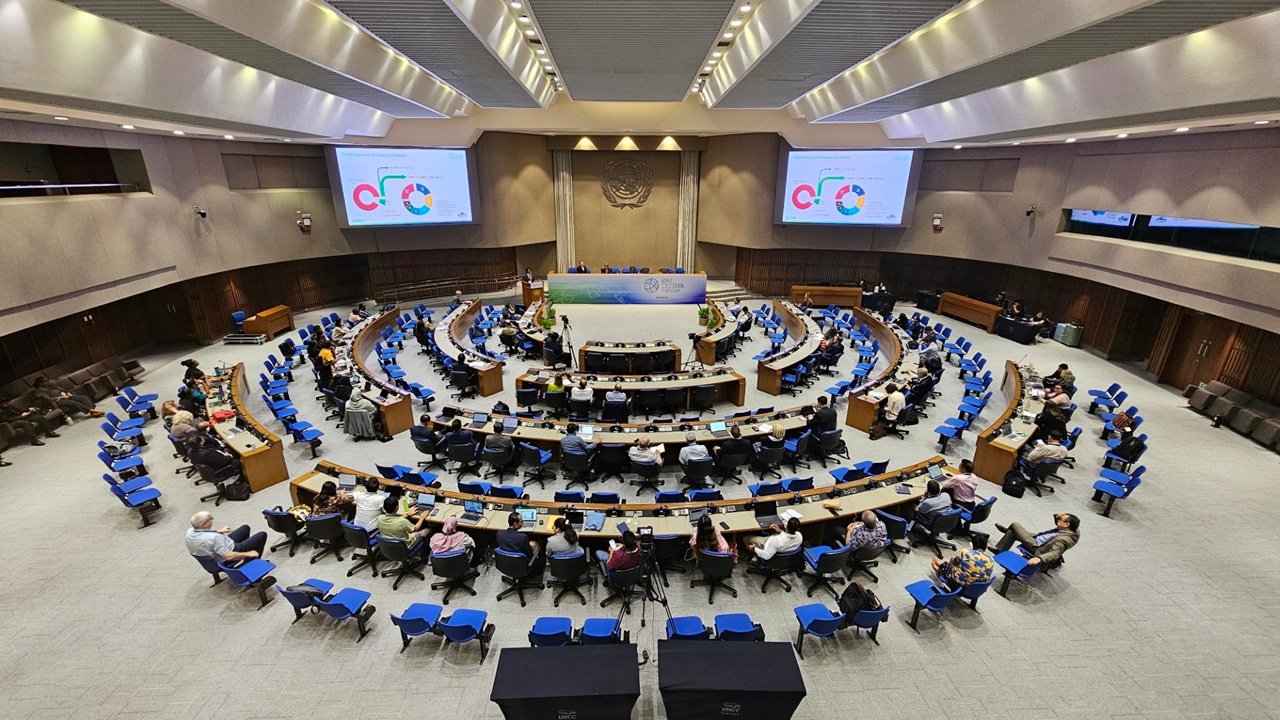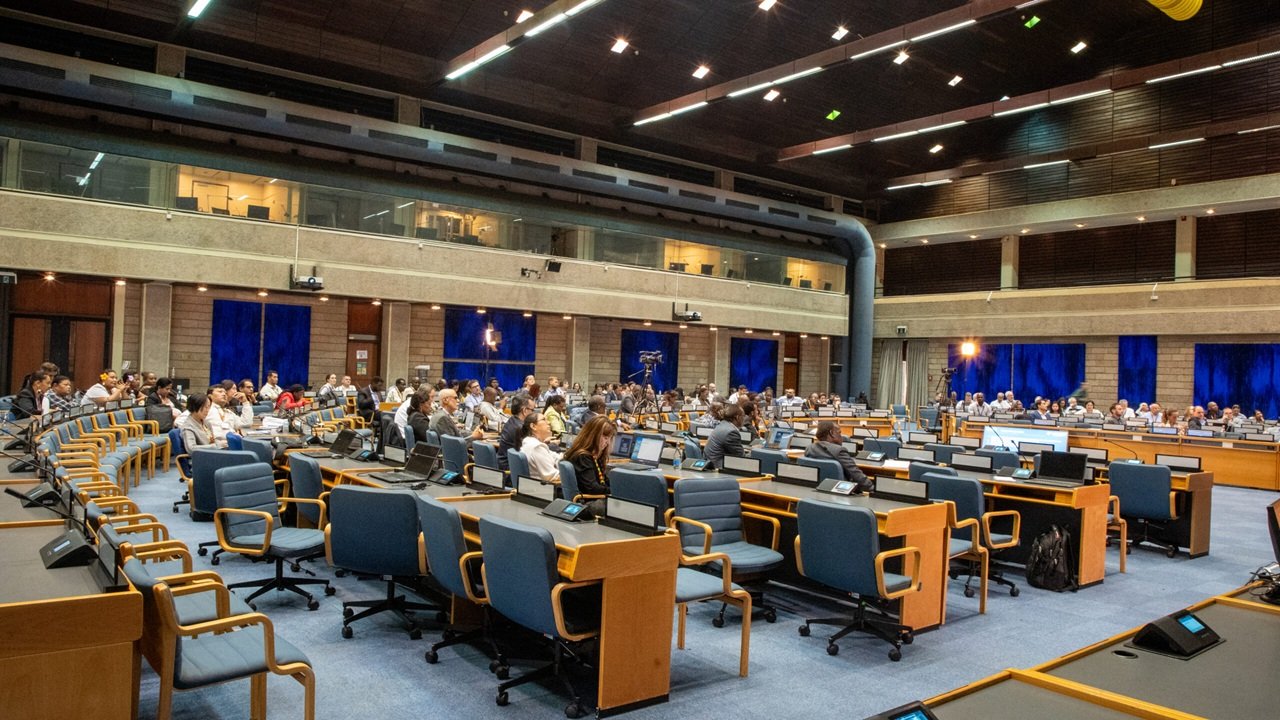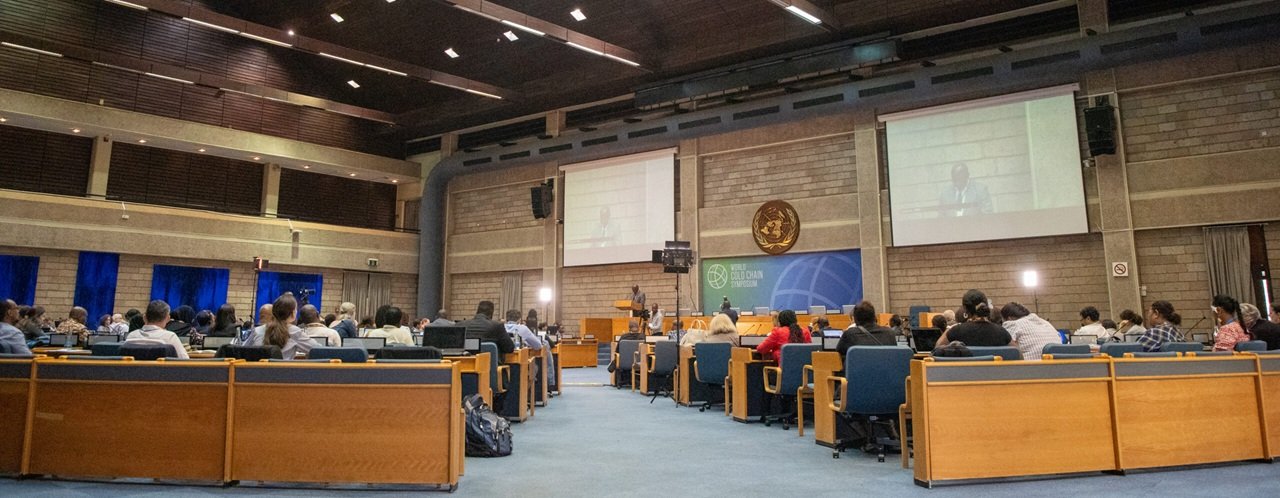The World Cold Chain Symposium (WCCS) 2025 took place on 1 November at the UNEP Headquarters in Nairobi, Kenya, ahead of the 37th Meeting of the Parties to the Montreal Protocol. Organised by the Global Food Cold Chain Council (GFCCC) in partnership with UNEP OzonAction and Carrier, this year’s event focused on “Energizing the Private Sector”, highlighting the role of public-private partnerships in developing sustainable cold chains.
The symposium featured four sessions addressing key aspects of cold chain development. The opening session explored how the Kigali Amendment has expanded opportunities for integrating environmental policy, energy access, and economic development. Speakers emphasized regulatory approaches that support innovation and the need for cross-ministerial collaboration and private sector investment.
In the second session, organisations including WWF, DanChurchAid, and UNIDO presented successful programmes using solar-powered systems and revolving funds. The panel discussed transitions from grant-based models to blended finance and pay-per-use approaches, aimed at reducing investment risk and empowering local stakeholders.
Session three highlighted private sector contributions from Carrier, Bitzer, and Danfoss, showcasing sustainable cold chain technologies and business models tailored to local needs. Marco Durán of the International Institute of Refrigeration (IIR) presented the EU-funded SophiA and AGRI-COOL projects, which developed container solutions for health and food cold chains through African-European research and industry collaboration. Durán noted the value of applied research, skill development, and training in these initiatives.
The final session spotlighted scalable investment-ready projects from KK Fresh Produce Exporters, IKIC Impact Ventures, and KIVU Cold Group. Presentations focused on strengthening project pipelines and linking innovators with financial resources.
The event concluded with a keynote, closing remarks, and a networking session, aiming to equip stakeholders with practical tools to advance global cold chain development.


